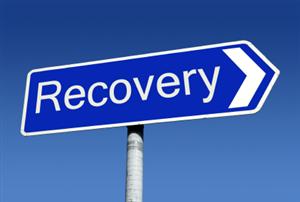 Sean Hannity often says that America is the greatest best country God has ever given man on the face of this Earth. It’s an oft repeated mantra, which if taken in the spirit of national pride and unity would be just fine. However, it is more often interpreted as some sort of birthright that America should rule the world… militarily, economically, intellectually, spiritually, and well hey… did I mention that we’re number one?
Sean Hannity often says that America is the greatest best country God has ever given man on the face of this Earth. It’s an oft repeated mantra, which if taken in the spirit of national pride and unity would be just fine. However, it is more often interpreted as some sort of birthright that America should rule the world… militarily, economically, intellectually, spiritually, and well hey… did I mention that we’re number one?
The trouble, of course, is that when you view everyone else as subordinate, you tend to believe they have nothing to teach you. I’ve written before about how there are countries out there with proven successes in achieving exactly the goals we’re trying to achieve in healthcare and education, but we are not even seriously studying or talking about these foreign models.
Now comes evidence that Iceland has done wonders in solving their housing market issues as well as getting their financial system back in order following the 2008 meltdown of both. In a nutshell, Iceland took over its banking industry rather than just bailing it out as we did here in the US. It then forgave any mortgage debt above 110% of a home’s value for all its citizens. This dramatically reduced the debt burden for most households and kept consumer spending from plummeting. It then instituted extensive new regulations on the banking industry to prevent another 2008-style catastrophe. Further, it has actively pursued criminal charges against almost 300 banking executives who were directly responsible for decisions leading up to the crash. The result?
Iceland’s $13 billion annual economy declined 6.7 percent the following year, in 2009, but has since rebounded and will expand by 2.4 percent this year and in 2013, the OECD estimated. Meanwhile, in the rest of debt-ridden Europe, the economy will collectively expand by a paltry 0.2 percent this year and only 1.6 percent the next, OECD estimates said in November.
Housing is now just about 3 percent below values in September 2008, just before the financial collapse. So improved is the nation’s economic and fiscal outlook that Fitch Ratings in February raised the country to investment grade with a stable outlook, stating the country’s “unorthodox crisis policy response has succeeded.”
By comparison, the US is projected to grow at 2.2% in 2012, the housing market remains underwater, and the banks are returning to many of the same policies that led to the crash in the first place.
It’s not clear that what happened in Iceland is directly applicable to the US. Perhaps those programs and policies would not function here as well for one reason or another. But the crime is that we are not even talking about it—not even trying to learn from their experience. The mainstream press has given Iceland almost no coverage. Politicians are not discussing what happened there and debating its applicability to our economy. As far as the US is concerned, Iceland doesn’t exist.
Is this because we’re too proud to admit a bunch of foreigners have something to teach us? Or is it because the special interests have a stranglehold on the media and the politicians and are suppressing stories that would lead to policies unfavorable to their moneyed interests? It’s not clear. But what is clear is that other countries are solving problems that we need to solve, and we’re idiots if we can’t find something to learn from them.

